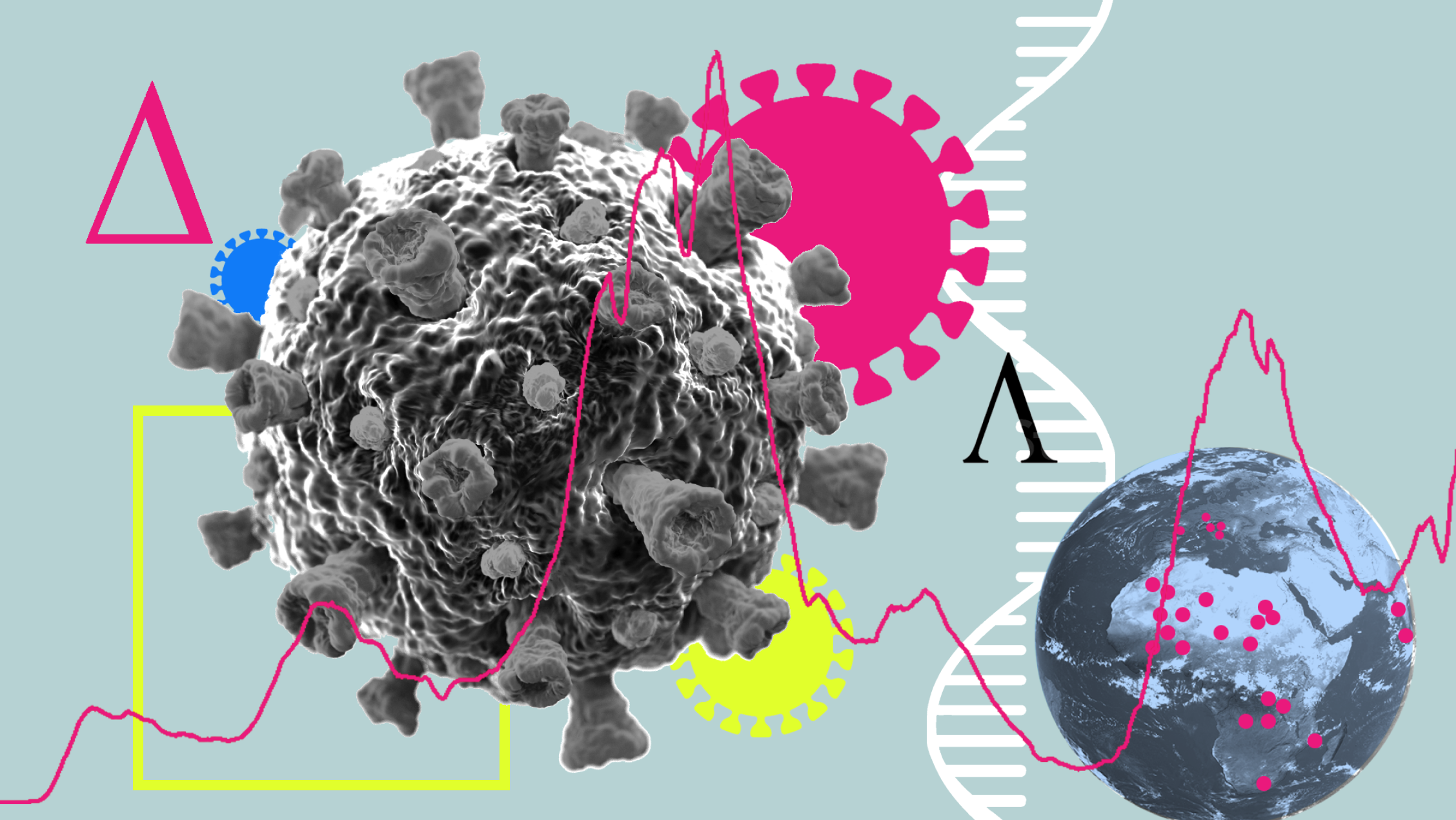Among all the nose swabs that have ever come up positive for covid-19 over the course of the pandemic, about two in a hundred have been sent for extra analysis in a gene sequencing machine. The objective: to create a fresh map of the SARS-CoV-2 virus’s genome—all 30,000 or so letters—and see what’s changed.
Such genetic surveillance has allowed scientists to quickly spot and warn about new variants like alpha, delta, and mostly recently omicron. It’s an unprecedented effort that’s turned SARS-CoV-2 into history’s most sequenced organism—blasting past the flu, HIV, or even our own human genome. Open databases now display more than 7 million maps of the germ’s genes.
Omicron is the most dramatic evolution yet. A lab in South Africa first sent up a warning flare in November after its sequencers spotted a virus genome with more than 50 mutations. Almost instantly, computers in Seattle, Boston, and London were using the data to spit out predictions: omicron was trouble, a variant likely to evade antibodies.
Don’t settle for half the story.
Get paywall-free access to technology news for the here and now.
